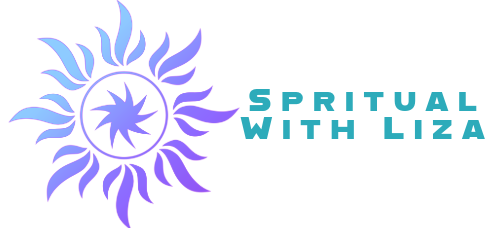11 Spiritual Meanings of High Blood Pressure
As we navigate the complexities of modern life, many of us struggle with high blood pressure, a condition often viewed as a purely physical issue. But what if we're overlooking a vital aspect? We've come to realize that this common health problem may be a symptom of deeper spiritual imbalances. It's as if our bodies are sounding an alarm, urging us to confront the emotional weight we've been carrying. By exploring the spiritual roots of high blood pressure, we may uncover surprising insights into our inner lives. So, let's take a closer look – what secrets is our body trying to reveal to us?
Key Takeaways
- Unresolved emotions and emotional baggage can manifest as high blood pressure and physical tension, highlighting the need for self-reflection and emotional release.
- Fear, anxiety, and stress can cause high blood pressure, indicating a need to let go of control and trust in the universe's ability to support.
- Disconnection from inner wisdom can lead to high blood pressure, emphasizing the importance of tuning into intuition and acknowledging subtle nudges.
- Resisting change and growth can manifest physically as high blood pressure, signaling a need to face fears and let go of what's holding one back.
- Lack of self-awareness and reflection can contribute to high blood pressure, highlighting the need for introspection, emotional intelligence, and personal growth.
Stress of Unmet Expectations
As we navigate the complexities of our lives, we often find ourselves burdened by the weight of unmet expectations, whether they be our own or those imposed upon us by others.
This expectation mismatch can lead to feelings of inadequacy, frustration, and disappointment. We may feel like we're constantly pushing to meet unrealistic standards, only to fall short.
This can cause our bodies to respond with stress and tension, which can manifest as high blood pressure.
We put immense pressure on ourselves to succeed, to be perfect, and to meet the expectations of others.
But what happens when we can't live up to these expectations? We feel like we've failed, and that sense of failure can be overwhelming.
It's crucial to recognize that these expectations are often unrealistic and unattainable. By acknowledging this, we can begin to let go of the burden and focus on what truly matters – our well-being and happiness.
Fear of Losing Control
We're no strangers to feeling like we're holding onto the reins of our lives for dear life.
But what happens when we're faced with the possibility of losing control? Our fear responses kick in, and our blood pressure starts to rise. We're talking about the fear of losing control – a deep-seated anxiety that stems from a need to micromanage every aspect of our lives.
This fear is rooted in a profound mistrust of the universe and its ability to support us.
We think that if we let go, even for a second, everything will come crashing down. So, we hold on tighter, trying to control every outcome, every conversation, and every situation.
But this need for control is suffocating, and our bodies respond by increasing our blood pressure.
It's time to recognize that our control issues aren't only affecting our relationships and well-being but also our physical health.
By acknowledging and addressing this fear, we can begin to let go of the need for control and trust that the universe has our backs.
It's a journey of self-discovery and surrender, but one that's essential for our spiritual growth and physical well-being.
Emotional Baggage Overload
I've been carrying the weight of unresolved emotions for far too long, and it's taking a toll on my physical and spiritual well-being.
We're not alone in this; many of us have been holding onto emotional baggage, unknowingly allowing it to manifest as high blood pressure.
The emotional weight of burdensome memories and unresolved conflicts weighs heavily on our hearts, causing our bodies to respond with tension and stress.
As a result, our blood pressure increases, sending a clear signal that it's time to confront and release the emotional load we've been carrying.
It's essential to acknowledge that our emotional experiences are intricately linked to our physical health.
By recognizing the emotional roots of our high blood pressure, we can begin to address the underlying issues and release the pent-up emotions that are causing our bodies to react.
This process requires self-reflection, honesty, and a willingness to let go of the past.
As we release the emotional weight, we'll start to notice a shift in our physical well-being, and our blood pressure will begin to return to a healthy state.
Disconnection From Inner Wisdom
Many of us have lost touch with our inner wisdom, neglecting the subtle nudges and intuitive whispers that guide us toward balance and harmony.
We've become so accustomed to external validation that we've forgotten how to tune in to our own inner compass. This disconnection from our inner wisdom can lead to soul neglect, where we ignore the gentle warnings and subtle urgings of our soul, causing us to feel ungrounded and uncertain.
As a result, our intuition becomes silenced, and we're left feeling lost and disconnected from our true selves.
We start to doubt our instincts and second-guess our decisions, leading to feelings of anxiety and stress.
High blood pressure can be a physical manifestation of this disconnection, a warning sign that we need to slow down and listen to our inner voice.
Resistance to Change
Most of us have, at some point, found ourselves stuck in a comfort zone that's no longer serving us.
We get comfortable in our routines, our relationships, and our ways of being, even when they're no longer nourishing our souls. But life is constantly evolving, and we must evolve with it. When we resist change, we resist growth. We resist the opportunity to learn, to adapt, and to transform.
High blood pressure can be a physical manifestation of this resistance.
Our bodies tense up, our hearts race, and our blood vessels constrict as we try to hold on to what's familiar. We may fear the unknown, fear failure, or fear losing control. But in doing so, we create more stress, more anxiety, and more dis-ease.
Life shifts, whether big or small, can trigger this resistance.
We may avoid making changes, hoping that things will magically go back to the way they were. But the truth is, we can't turn back the clock. We must face our fears, let go of what's holding us back, and trust that the universe has our backs.
Unresolved Childhood Trauma
As we navigate the complexities of adulthood, unresolved childhood traumas can linger in the shadows, influencing our thoughts, emotions, and even our physical health.
We may think we've left those painful experiences behind, but they can resurface as anxiety, fear, or anger, manifesting as high blood pressure. Our inner child, once wounded, still cries out for healing and validation.
When we don't confront and resolve these childhood wounds, they can continue to define our self-perception, relationships, and life choices.
We may struggle with trust, intimacy, or feelings of worthiness. This emotional turmoil can lead to chronic stress, which, in turn, can contribute to high blood pressure.
Crucial to recognize and tackle these deep-seated issues, allowing ourselves to heal and release the emotional baggage.
By doing so, we can break free from the grip of our past and cultivate a more compassionate, loving relationship with ourselves.
As we heal, our bodies respond, and our blood pressure can return to a healthy range, reflecting our newfound sense of peace and well-being.
Lack of Self-Care Priorities
We've all been guilty of putting others' needs before our own, sacrificing self-care for the sake of our loved ones, careers, or social obligations.
It's easy to fall into the trap of prioritizing others, thinking that our own needs can wait. But the truth is, neglecting self-care can have serious consequences, including high blood pressure.
When we consistently put others first, we're fundamentally saying that our own well-being isn't important enough to prioritize. This self-care neglect can lead to feelings of resentment, burnout, and even physical illness.
Unhealthy Boundary Setting
How often do we find ourselves trapped in a never-ending cycle of people-pleasing, saying yes to every request that comes our way, and overcommitting our time and energy?
We're afraid to say no, fearing rejection, judgment, or abandonment.
This constant boundary pushing leaves us feeling drained, resentful, and stuck.
We sacrifice our own needs and desires to maintain a sense of belonging, unaware that we're compromising our well-being in the process.
Inner Conflict and Turmoil
Many of us know the feeling of being torn apart by conflicting desires, values, and beliefs that wage war within us.
This inner conflict and turmoil can manifest physically as high blood pressure, a symptom of our body's attempt to contain the emotional turbulence. We may not even realize the depth of our inner chaos, but our body is sending us a signal that it's time to explore and reconcile these warring factions.
Some signs of inner conflict and turmoil that may contribute to high blood pressure include:
- Hidden anger or resentment towards ourselves or others
- Feeling stuck between two or more opposing viewpoints or desires
- Inner criticism or self-doubt that creates anxiety and tension
- Unresolved past traumas or emotional wounds that continue to simmer
- Feeling disconnected from our true selves, leading to feelings of restlessness and discontent
Ignoring Intuitive Red Flags
As we navigate the complexities of our inner world, we may encounter another obstacle that contributes to high blood pressure: ignoring intuitive red flags.
Those subtle intuitive whispers, often dismissed as mere anxiety or paranoia, can actually be warning signs that something is amiss. When we consistently silence these inner alarms, we may find ourselves stuck in situations that drain our energy, causing our blood pressure to soar.
We might rationalize our doubts, convincing ourselves that we're overreacting or being too sensitive.
But the truth is, our intuition is a powerful guide, designed to protect us from harm. By ignoring its gentle nudges, we may find ourselves trapped in toxic relationships, unfulfilling careers, or unhealthy habits.
As a result, our bodies respond with stress, anxiety, and eventually, high blood pressure.
It's essential to tune in to our intuition, acknowledging those gentle whispers and honoring their wisdom.
Unrelenting Perfectionism Demands
Unrelenting perfectionism demands can be a silent saboteur, quietly driving us to push ourselves beyond reasonable limits.
We may not even realize we're operating under the assumption that we must be perfect, but the pressure to perform is palpable. This relentless drive can lead to high blood pressure, as our bodies respond to the stress of trying to meet unrealistic goals.
Some common signs of unrelenting perfectionism demands include:
- Rigid standards that leave no room for error or flexibility
- Unrealistic goals that are impossible to achieve
- Self-criticism and negative self-talk when we fail to meet our own expectations
- Feeling like we're never good enough, no matter how hard we try
- A sense of burnout and exhaustion from constantly pushing for perfection
When we recognize the toll that unrelenting perfectionism demands are taking on our bodies and minds, we can begin to let go of these unrealistic expectations.
Frequently Asked Questions
Can High Blood Pressure Be a Spiritual Awakening Symptom?
We've noticed that high blood pressure can be a symptom of a deeper spiritual awakening, where energy shifts within us, and blocked emotions start to surface, urging us to confront and release what's been holding us back.
How Do I Balance Spiritual Growth With Medical Treatment?
As we navigate the complexities of our well-being, we're faced with balancing spiritual growth and medical treatment. We find harmony by setting mindful intentions, prioritizing inner harmony, and embracing a holistic approach that honors our whole selves.
Can Meditation Alone Lower High Blood Pressure?
We've wondered if meditation alone can lower high blood pressure, and the answer is yes! Regular meditation can reduce stress triggers, calm our nervous system, and even lower blood pressure – it's not a replacement for medical treatment, but a powerful complement.
Is High Blood Pressure a Sign of Spiritual Stagnation?
We've asked ourselves, is high blood pressure a sign of spiritual stagnation? We believe it can be, as energy blocks and stagnant emotions manifest physically, stifling our growth and flow, urging us to release and rebalance our inner world.
Can Spiritual Practices Reduce Blood Pressure Medication Needs?
As we explore ways to manage our health, we wonder: can spiritual practices truly reduce our need for blood pressure medication? We've found that incorporating mindful breathing and a holistic approach can indeed help, promoting a sense of balance and well-being that resonates deeply within us.

Liza Stockholm is an esteemed spiritual guide and the visionary behind Spiritual with Liza. With a profound passion for empowering others on their spiritual journey, Liza offers a blend of educational content and personal guidance. Her expertise in spirituality is rooted in years of dedicated practice and study, making her a trusted companion for those seeking enlightenment and inner peace.






